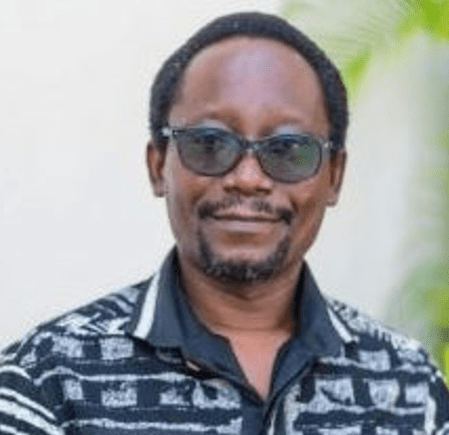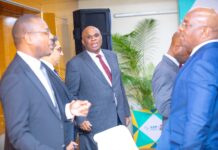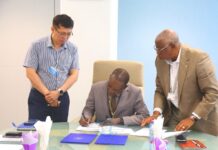By Adjei Dickens Ofori OFORI ASARE
Dr. Paul Herzuah, a lecturer at the University of Media Arts and Communication-Institute of Journalism (UniMAC-IJ), pointed out that language plays a huge role in shaping Ghana’s democratic process, especially with the 2024 general elections just around the corner.
Speaking at a public forum organized by the Directorate of Research Innovation and Development at UniMAC on November 22 via Zoom, Dr. Herzuah sounded a warning that the media’s reckless use of language can put Ghana’s democratic stability at risk.
“Words can deepen our democracy or jeopardize it,” he said, stressing the need for careful communication. Using the 1994 Rwandan genocide as a cautionary example, he recalled how radio broadcasts labeling the Tutsi minority as “cockroaches” fueled violence that claimed nearly a million lives. “That tragic event reminds us of the dangerous consequences of inflammatory language,” he said.
Dr. Herzuah noted that while Ghana’s democracy is seen as stable, partisan bias in the media can put it at risk. He cited a Media Foundation for West Africa’s report that found over half of media ethics violations stemmed from partisan influences. According to him, this undermines trust in journalism and weakens democracy.
He also drew attention to the impact of social media, which has been a rallying point for protests like #FixtheCountry #OccupyJulorbiHouse, and #StopGalamsey. However, he cautioned that unchecked disinformation on these platforms could spiral out of control, incite unrest, and erode confidence in institutions.
“Social media is like fire—it’s useful, but if mishandled, it can burn everything down,” Dr. Herzuah said. He called for greater regulation of digital spaces and efforts to educate the public on identifying and resisting misinformation.
Dr. Herzuah stressed the importance of constructive dialogue and respectful communication, urging Ghanaians to express their concerns without resorting to insults or inflammatory rhetoric. He also called for investments in institutions like UniMAC to promote media literacy, responsible journalism, and civic responsibility.
“Institutions like UniMAC must be resourced to lead the way in teaching ethical communication. Without this, we risk allowing irresponsible speech to destabilize our democracy,” he said.
He ended his remarks with a plea for all stakeholders—politicians, journalists, and citizens—to recognize the power of their words. “We must use language to unite, not divide. As we approach the elections, let us communicate in ways that strengthen our democracy rather than weaken it.”
The forum, held under the theme “The Election Dividend: Threats to Democracy, the Role of Communication, and Reinventing Civic Responsibility”, featured presentations from several experts like Project Director of the Democracy Project, Dr. Osae-Kwapong, Director of the Center for International Relations at the University of Media Arts and Communication (UniMAC), Dr. Lawrencia Agyepong and Erastus Asare Donkor, Assistant News Editor and Broadcast Journalist at Multimedia Group Limited.










